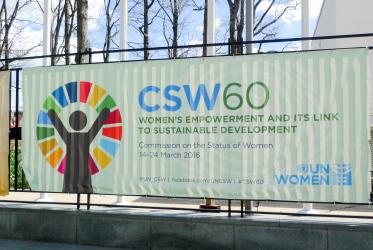Bishop Mary Ann Swenson has a unique position in observing and advocating for women’s rights or, as she would quickly clarify, “the fair treatment of human beings” no matter what their gender. As bishop-in-residence at the Hollywood United Methodist Church, she ministers to church members who were not only present at this week’s Golden Globe Awards – they were the nominees. And, as vice-moderator of the WCC Central Committee, she is part of a global parish, traveling to communities far removed from the privilege of Hollywood, where violence occurs against women who are seen by their own communities as having no voice and no rights.
11 January 2018




